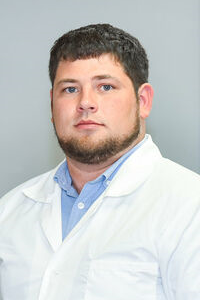Basic Information about the Laboratory:
The laboratory was set up to develop and implement new approaches to the synthesis of functional magnetic nanomaterials for biomedical use. The research group of the laboratory develops unique materials that may be used to obtain effective therapeutic and diagnostic agents for treating hepatic, prostate and brain cancers.
Activities of the Laboratory:
The Laboratory of Biomedical Nanomaterials was established in 2014 as part of implementing the program of increasing the University’s competitiveness
Its infrastructure allows conducting comprehensive surveys of nanohybrid materials, including the chemical synthesis and examination of their physical and chemical profile. It was for the first time that NUST MISiS created the conditions for biological researches of nanohybrid materials. 40 articles were published as the follow-up on researches done in
The surveys performed by the laboratory are of a global nature: it extensively collaborates with the University of Nottingham (Great Britain), University of Duisburg-Essen (Germany), the Center for Drug Delivery and Nanomedicine at the University of Nebraska Medical Center (United States), the University of North Carolina (United States), and the Massachusetts Institute of Technology (MIT, United States).
The Laboratory of Biomedical Nanomaterials researches the following areas:
- comprehensive surveys of magnetic and electromagnetic nanoparticles of different sizes, morphology and structure;
- development of methods to obtain magnetic nanoparticles of the coat-core type, with the dimeric and trimeric structure;
- application of magnetic nanomaterials as contrast agents for MRI diagnostics of brain, liver and prostate cancers;
- elaboration of theoretical and practical approaches to managing biological processes by using the low-frequency magnetic field;
- examining multi-functional nanohybrid materials of the antitumor effect, and
- development of methods to obtain hybrid magnetic materials based on photodynamic agents and their use for the photodynamic therapy of tumors.
Maxim AbakumovHead of laboratory |
